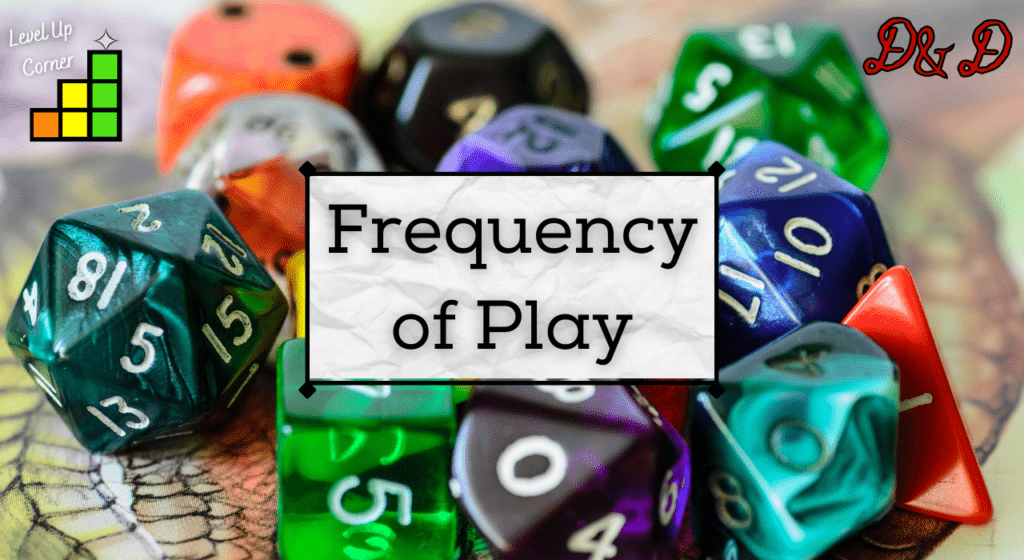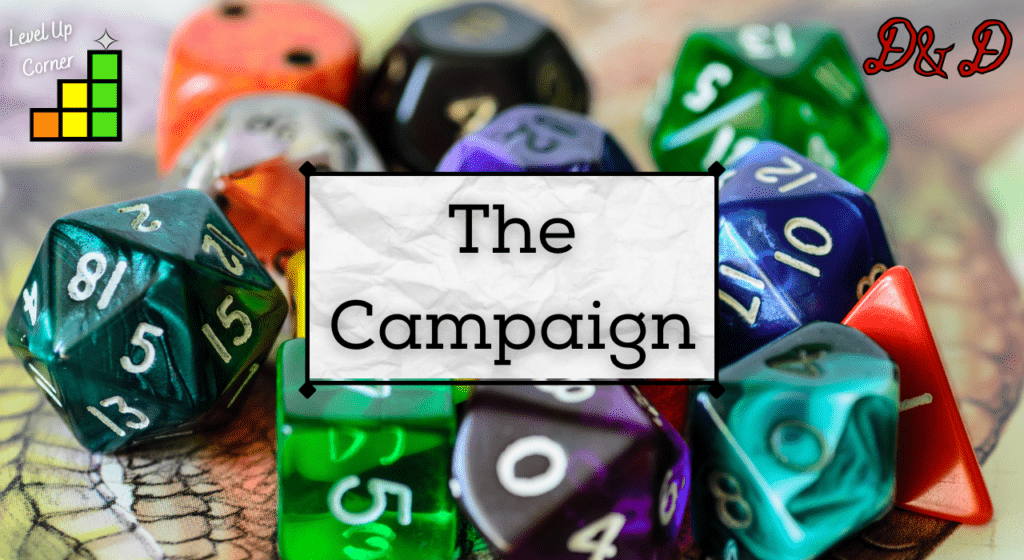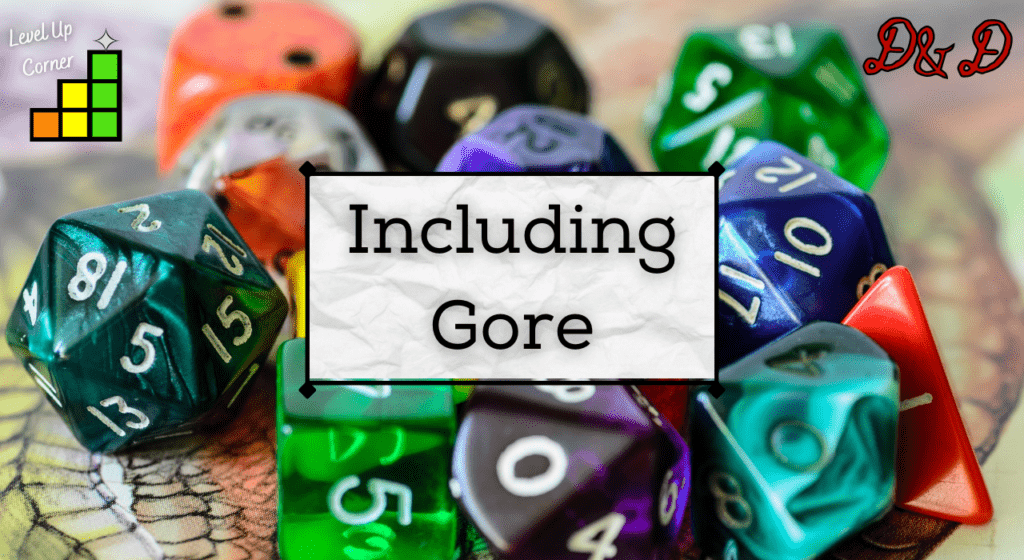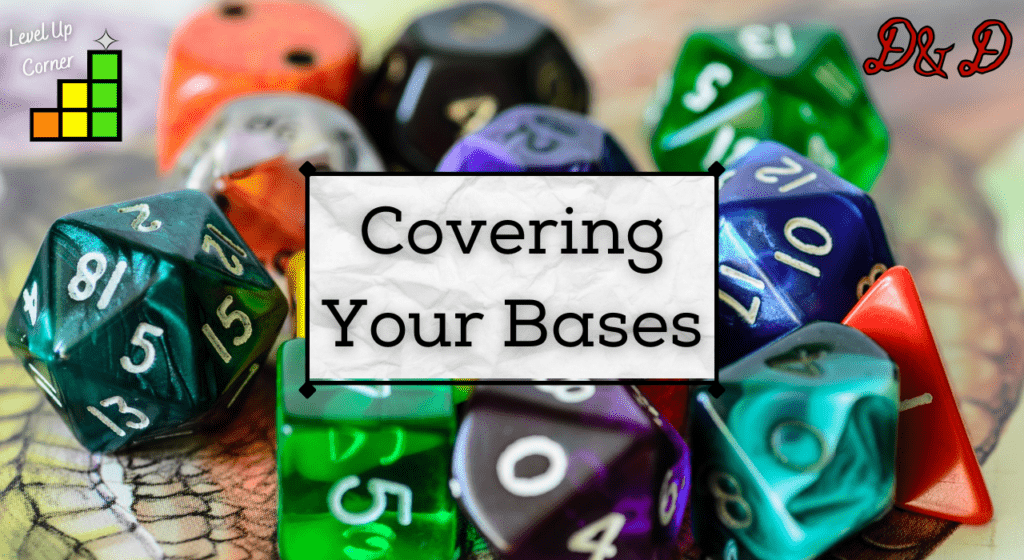The purpose of a D&D session 0 is to set the campaign’s tone and prevent problems before they begin. D&D session 0’s are becoming more and more popular, and here are the reasons why.
If you do not hold a D&D session 0, you will encounter problems. Have you ever been put into an awkward situation? Do players start to add new rules halfway through? You may even delve into areas that may make others uncomfortable. These situations can kill a campaign and are entirely avoidable with a session 0.
That is why you need to include a session 0 in your D&D campaign. Here is a 10 step guide on how to run this session and start your campaign off right.
D&D Session 0: The Basics
A D&D session 0 is necessary to prevent problems in your campaign.
The possibility of future problems may seem minor at first, but they can quickly derail a campaign. A seemingly minor issue is the frequency of play at your table. You need to figure out how often you are able to play, on what days, and what times. While this type of thing may seem obvious, it is still essential if you want to run a smooth campaign.
There are other future problems that are hard to spot, or just forgotten about.
A problem that is ignored in many games is deciding what type of game you are going to run. D&D is a fantasy-medieval style game, and there isn’t much of a difference between games, right? Any seasoned D&D player knows that this isn’t the case. Some want to play a game that is centered around combat, while others disdain combat and prefer roleplay. Some players may want to be evil, while others wish to be heroes. Being on the same page is extremely important when coming together to play a game. Without this, your group can survive together for a time, but may fall apart after weeks or months.
Some other basics that you need to address in your session 0 is how to handle hard topics. The trope that ‘bards attempt to flirt with anything that moves’ is well known. How will you address this when a player takes that trope to heart and wants to roleplay the situation?
These are the types of basics that you need to cover before a game begins. If left unchecked, they can cause discomfort for your players and possibly cause the campaign to end prematurely. Read on for the top 10 most essential aspects of any D&D session 0.
1. Frequency of Play

While this may be quite obvious, you need to decide how often you will be playing during your D&D session 0. Bi-monthly, weekly, or once a month are the most common frequencies.
Weekly games are the most likely to succeed and give the group a stronger connection. This frequency puts more pressure on the DM but is very much worth it. The main problem is time. Can you commit every single week? This aspect can result in more drops due to real-life changes.
Bi-monthly sessions still provides some connection to the group, but only succeed if everyone is busy and looks forward to the game. Otherwise, this frequency has the chance of being too infrequent where players forget what they were doing or make excuses to not come to the session since it isn’t part of their weekly routine. Bi-monthly groups are usually most successful with an older audience, but fail with younger players.
Monthly sessions are tricky. They accentuate every part of a bi-monthly game and crank it up a few notches. Because of this, it is very rare for a monthly gaming session to complete a campaign. You need to have really short campaigns or do a series of one-shots to make this work.
Once you have chosen your frequency of play, you must all agree on a day and time to meet. This is the easiest part of setting up your meetings since it is the most apparent. You need to meet to play, and figuring out everyone’s schedule is a necessity. An important question that needs to be addressed here is what you do when someone cannot make the session.
What if players need to cancel? If your group has 5 players, do you need everyone there or can you play with 3 or 4 players? What if only 2 players can come? If player’s don’t know the guidelines here, they are more likely to cancel last minute. When players understand that they have a responsibility to show up in order for the game to happen, they will make it more of a priority to be there and not waste others’ time.
Lastly, you should also discuss other minor considerations such as food. People need to eat, and you have to plan around this. You may also have to discuss factors like transportation and commitment. Every game and group is different, after all.
2. Where to Play
Another important topic to include in your D&D session 0 is where to play. You can play online or in person, but both need to have specifics given to the group.
If you are playing online, everyone needs to know what platform they are using, if a camera is required, and how they will communicate with each other. Beyond this, they might need to know what is the minimum system requirements to play. A player might be surprised when their phone or tablet isn’t optimal for playing and will bemoan getting a mouse.
For in-person games, the players need to know where they will be playing, but also the expected dress code. If you go to play D&D and believe it will be in someone’s basement or garage, you might not care about what you wear. If your gaming area will be at someone’s house or workplace, players may feel more comfortable in a different set of attire. Make sure to describe the gaming area, as it will alleviate much unease.
3. Allowances and Communication
Knowing where you will play will help give an idea of what to expect when gaming, but there may be unexpected allowances that can cause issues. For example, alcohol use. Communicating about what is and isn’t allowed at the table will help alleviate potential concerns like these.
Some groups allow drinking and others do not. There is no right or wrong answer to this, but sometimes rules need to be set in place. If alcohol is allowed when your players can’t handle their liquor and it negatively impacts gameplay, rules will need to be set in place.
This applies to other possible issues such as smoking (in any form). You all need to communicate what you are or are not fine with at the table.
Beyond this, everyone needs to be able to communicate with one another when needed. If a player isn’t able to make the session, there shouldn’t be only one player who can contact them. Everyone should be on friendly terms and be able to talk to or message each other.
This includes the DM. The DM should always be accessible when a player has a concern. This allows for better communication across the board and helps everyone feel safe. If a player is doing something that someone else is uncomfortable with, the DM needs to know about it.
4. The Campaign

We are now getting into topics that are usually not discussed before starting a campaign, but that massively impact the game. One of the most often forgotten areas is discussing the campaign itself.
You should let your players know a little about what the campaign is going to be like. Will the campaign be a module or homebrew? Will you be doing a linear or open-world sandbox game? Any of these choices are fine, but your players should be aware of the style of gameplay. After all, they may have preferences for what type of game they want.
You need to communicate what the theme of your game is to the players. You should describe the setting and tone of the game. The setting includes the world, where they are, what they need to know, and so on. The theme is what type of game they should expect, such as combat heavy, roleplaying, exploration, an equal mix of them all, and any important environmental factors.
For example, you might not want to play a druid if the entire campaign is centered in an urban sprawl that doesn’t even have a natural park. This lets player’s know ahead of time that some parts of their characters may not come into play as much, and gives them the information up front rather than finding out after weeks of investment.
Lastly, how will your players level? Will you use a milestone or experience based system, and how will different actions affect the game overall? If you are using experience, there may be important questions such as, ‘how much experience does roleplay give the player?’ If it is a low amount, be ready for a kill-first-ask-questions-never type of game.
When you have specific conditions that must be met before players can level, such as needing a trainer or time to reflect upon their experiences, you need to be upfront with this information.
5. Table Rules
One of the least considered D&D session 0 topics is table rules. Table rules include things like house rules, rules disputes, passive rules that are often forgotten, player death, player etiquette, and actions against other players.
This is a lot to cover, but these rules need to be detailed before the real sessions start. If you have house rules, they need to be disclosed to your players up front. Nothing is more frustrating than a random rule being thrown into the mix which interrupts the flow of the game.
Rules disputes happen. No one is perfect, and everyone gets something wrong. Whether you handle them in the moment, or push it until after the session will impact your game. This goes hand in hand with rules that were passively in effect but forgotten about. Should you retroactively change the game’s rules?
Rules that set you apart from other tables should also be addressed. A common one is how you handle death. Some DMs don’t allow death in their games while for others it’s a common occurrence. You can take a more moderate approach, but be forward about the conditions or likelihood of players dying. Speaking of player death, you should also address how player-versus-player actions are handled.
In terms of player etiquette, things like distracting other players, using your phone during sessions, and working as a team even if their characters are in conflict are some important discussions that need to happen before the game starts.
Other important factors include how you handle dice rolls. What happens if a die falls off the table, or off the intended rolling surface? These are just some examples of the types of table rules you should work out during your D&D session 0.
6. Grim Topics
These are the types of questions that no one asks, but can quickly destroy a group. Covering these topics during your D&D session 0 is essential to avoid campaign-ending issues later on.
Are your players okay with grim topics appearing in your game, such as rape or torture? Some games involve R-rated events that involve sexual or mature themes. One or two players might push these events forward, regardless of what the DM has planned. For this reason, you need to establish from the beginning what everyone is comfortable with.
Another important topic to discuss is racism. Racism is a part of just about any fantasy setting, at least to some extent. But are your players OK playing in this type of world? It may take the form of light jabs, such as how an elf can joke about and mock a dwarf and the dwarf does likewise. But it can also take harsher forms, such as certain races being enslaved.
Racism in a fantasy setting can enhance the story, world, and your player’s characters, but it needs to be handled responsibly. We have an article dedicated to such a topic here.
If everyone agrees to include these types of topics, how much is too much? What topics should be left out entirely? If you don’t discuss these things during your D&D session 0, players may feel uncomfortable later on and possibly leave your game.
7. Including Gore

Gore is a more difficult topic to tackle. With other grim topics, no doubt you already know how to address them in your game. Some players may push for more gore in a game, while others may want as little as possible. DMs should make their worlds pop with descriptions, but sometimes it can be too much.
For example, do players get queasy when you describe how a dagger makes a popping sound as it pierces the victim’s spleen, causing them to gasp for air and claw with their hands as they desperately try to crawl away? How about the crunch of bones when the rock causes a rib to stick out from a victim’s chest?
This level of description is not for everyone. Your view of an acceptable level of gore might differ from your players, which is why this topic should be covered during your D&D session 0.
8. Making Characters
Every single table has an ideal way to create characters. In your D&D session 0 you need to convey how this process works. Specific races, classes, and features might be restricted. Make sure the players understand this before they make their characters and make the process as fair as possible.
The players need to know what is acceptable when making backstories and how you are going to work with them. You should also discuss what starting equipment they are allowed to have, and any other specifics regarding characters and character creation. This is what the players will be the most focused on since it will impact them the most.
Specify what D&D books are allowed, and your stance on homebrew. In addition, make sure that your players are playing characters that make sense for the game. If someone is playing a farmer that doesn’t want to adventure, you might have a problem. If someone is playing a character that intends to turn on the party, this is also a concern.
9. The Party
One of the most crucial, but often forgotten elements of a D&D session 0 is the party. First, you must make sure that the party will work together well. You cannot have a completely dysfunctional group or characters that have contrastingly different values. For example, if the entire party consists of backstabbing, evil, selfish individuals, this likely won’t work out well.
You need to discuss intercharacter relationships. Which characters know each other before the game starts, and how well will they all work together?
If no one knows each other, then a major event is needed to bring the party together. The concern is the aftereffects of that event. How will they stick together? This needs to be discussed beforehand. Your players need to be on the same page, and everyone needs to have a desire to play as a group. Having this conversation will help establish a sense of teamwork from the get go.
10. Covering Your Bases

Even when addressing all of these topics in your D&D session 0, no one is perfect. Because of this, you have to be prepared for unforeseen circumstances. As a DM, it is possible to make mistakes or rub players the wrong way. When this occurs, make sure that your players feel like they can talk to you. The DM’s word is law, but you don’t want to be a dictator that doesn’t care about their players. This is mostly solved with good communication, but it should be emphasized in your D&D session 0.
Another commonly forgotten part of D&D session 0 is to ask your players. Ask if they have any questions or anything that they want to add. Your players may have more questions about the world, a great idea, or questions about the rules.
Once your players are all set, your D&D session 0 is complete and you are prepared to have an amazing campaign!
Conclusion
If you forget to hold a D&D session 0, your group and campaign could suffer for it. By following this ten step guide, you will be much better prepared to make your session 0 (and D&D campaign) a hit success.
I hope that this article has helped you figure out how to use a session 0 successfully.
This has been Wizo, and keep rolling!
Find us on Twitch:
https://www.twitch.tv/levelupcorner
Find us on YouTube:
https://www.youtube.com/channel/UCWNkoo0iRoysNdlkWZdfnrQ
Want to support our creators? Find our Patreon here:




